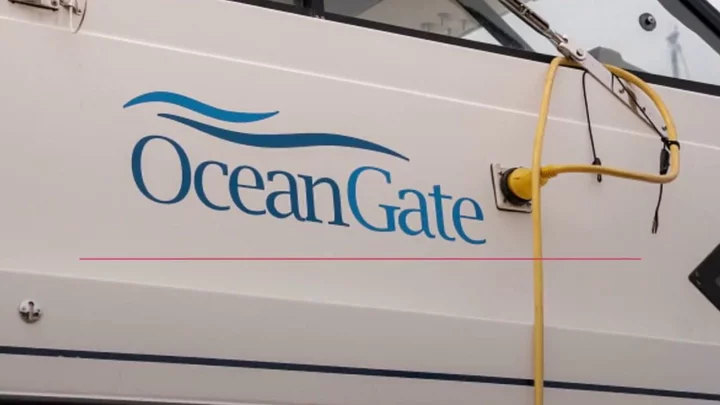OceanGate founder now wants to send people to least hospitable planet in the galaxy
The co-founder of the OceanGate is now planning to send 1000 people to Venus despite the bad press the company has received following the doomed Titanic submersible trip in June which killed five people. Despite the tragedy, which saw the submersible implode killing everyone onboard, including the company's co-founder Stockton Rush, his colleague Guillermo Söhnlein is not deterred and has told Insider that he now has ambitions for space. According to Söhnlein he now wants to see 1000 people living on the surface of Venus, the hottest planet in the solar system, by 2050. The American businessman born in Argentina said: "I think it is less aspirational than putting a million people on the Martian surface by 2050. Sign up to our free Indy100 weekly newsletter "You're absolutely right that when you talk about going to Venus, it would raise eyebrows outside the space industry. And it even raises eyebrows inside the space industry." "I think I've been driven to help make humanity a multi-planet species since I was 11 years old, I had this recurring dream of being the commander of the first Martian colony." This all sounds well and good and after all Elon Musk has similar aspirations for Mars but Venus is an odd one as at this moment in time its one of the least hospitable planets in the galaxy. Aside from being the hottest planet in the solar system, as mentioned, its atmosphere is made up of greenhouse gases and its clouds contain sulphuric acid which make Venus so hot that temperatures can reach 475 °C. Regardless of this, Söhnlein thinks it is "very doable" that a floating space station could withstand the harsh conditions on Venus but will likely be met with skepticism. Söhnlein's Humans2Venus project has been co-founded with researcher Khalid Al-Ali and will strive to develop technologies that will reduce launch costs and fund space projects without government money. Have your say in our news democracy. Click the upvote icon at the top of the page to help raise this article through the indy100 rankings.
The co-founder of the OceanGate is now planning to send 1000 people to Venus despite the bad press the company has received following the doomed Titanic submersible trip in June which killed five people.
Despite the tragedy, which saw the submersible implode killing everyone onboard, including the company's co-founder Stockton Rush, his colleague Guillermo Söhnlein is not deterred and has told Insider that he now has ambitions for space.
According to Söhnlein he now wants to see 1000 people living on the surface of Venus, the hottest planet in the solar system, by 2050.
The American businessman born in Argentina said: "I think it is less aspirational than putting a million people on the Martian surface by 2050.
Sign up to our free Indy100 weekly newsletter
"You're absolutely right that when you talk about going to Venus, it would raise eyebrows outside the space industry. And it even raises eyebrows inside the space industry."
"I think I've been driven to help make humanity a multi-planet species since I was 11 years old, I had this recurring dream of being the commander of the first Martian colony."
This all sounds well and good and after all Elon Musk has similar aspirations for Mars but Venus is an odd one as at this moment in time its one of the least hospitable planets in the galaxy.
Aside from being the hottest planet in the solar system, as mentioned, its atmosphere is made up of greenhouse gases and its clouds contain sulphuric acid which make Venus so hot that temperatures can reach 475 °C.
Regardless of this, Söhnlein thinks it is "very doable" that a floating space station could withstand the harsh conditions on Venus but will likely be met with skepticism.
Söhnlein's Humans2Venus project has been co-founded with researcher Khalid Al-Ali and will strive to develop technologies that will reduce launch costs and fund space projects without government money.
Have your say in our news democracy. Click the upvote icon at the top of the page to help raise this article through the indy100 rankings.

